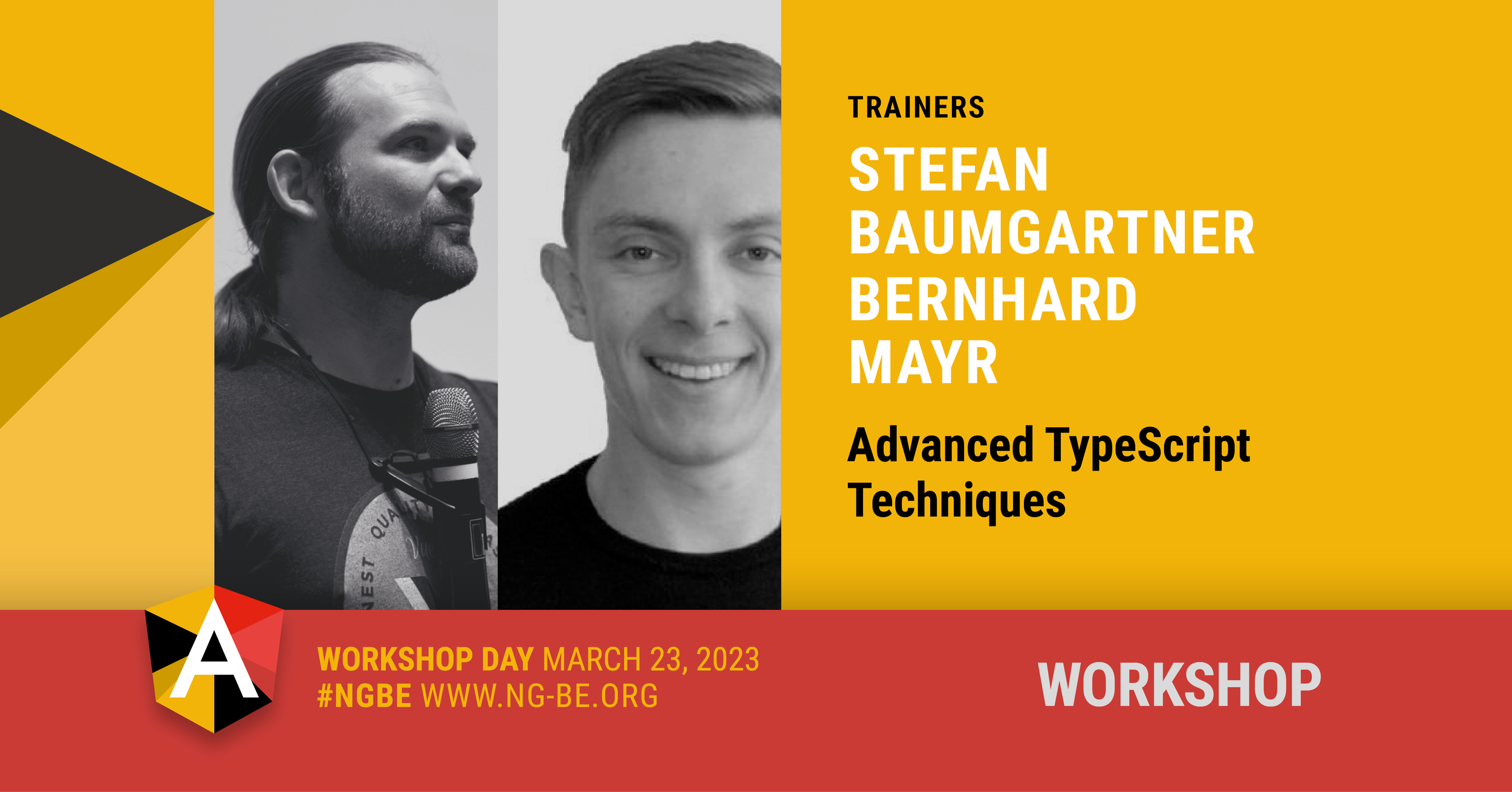Description
In this workshop, Stefan and Bernhard teach you TypeScript beyond the basics.
You learn about the inner workings of the type system, the trade-offs it makes, and how you can work around the most annoying TypeScript bugs.
After the workshop, you will have an eye for flaws and pitfalls in your code, and will write the most readable, robust, and helpful types for your code-base.
Join this workshop to become the TypeScript expert in your organization!
Trainers
Stefan Baumgartner
Bernhard Mayr
Schedule
07:30 - 08:30
Continental breakfast buffet with the trainers
08:30 - 10:30
The inner workings of TypeScript's type system
We start by learning all about the inner workings of TypeScript's type system. Where does it get its type information, how does inference work, and what techniques you have to describe your types.
Using annotation and inference to your advantage
The hidden power of overloads
Tuples and Variadic Tuples
Type vs Value Namespaces
Error Handling
Any, Never, Unknown
Using Declaration Merging
The troubles with Enums
10:30 - 11:00
Break with coffees, teas, juices, energizers and snacks
11:00 - 12:30
Meta Programming
Once we set the baseline, we start working with advanced type definitions based on conditional types, string template literal types, and generics. Here, we learn how to do meta programming in the type system, and if and how this is useful to you.
Conditional Types
Working with String Template Literal Types
Built-in Helper types
Defining Custom Helper Types
Rules and Guidelines for Meta Programming in the Type System
What does a type hold
Debugging and Testing Types
12:30 - 14:00
Lunch with fresh soup, salads, selections of cold and warm fish and meat dishes, dessert
14:00 - 15:30
Boundaries and Workarounds
TypeScript always needs to prepare for edge cases, that's why some of your scenarios might cause weird bugs and error messages in TypeScript, even though you are 100% certain that your code works. In this section, we see what common pitfalls you might encounter, what's the reason behind it, and how you can work around it.
Making unsafe operations visible
Patching built-in assumption
Working with Object.keys
Index Access Operations gone wrong
A small tale of fetch
Declaring boundaries
Type predicates, type assertions, assertion signatures
Validation Libraries
15:30 - 16:00
Break with coffees, teas, juices, energizers and snacks
16:00 - 17:30
Type Development
Last, but not least, we look into strategies on how we can write the best types for our software. Where can we leverage the incredible powers of TypeScript's type system, and where is it ok to stop.
Low Maintenance Types
Step by Step Refinement
Satisfies and other TypeScript 5 features
Handling multi-library project setups
Sharing Types
Dealing with complex type errors
Knowing where to stop
About Stefan Baumgartner
Stefan Baumgartner is a software architect working at Dynatrace, and the owner of oida.dev. He is the author of “TypeScript in 50 Lessons”, published by Smashing Magazine, and the TypeScript cookbook, to be published by O'Reilly. He organizes ScriptConf, TSConf:EU, DevOne and Rust Linz. Stefan enjoys Italian food, Belgian beer and British vinyl records.
About Bernhard Mayr
Bernhard Mayr currently does his Psychology and Mobile Computing master's degrees.
Alongside studying, he is working as a software engineer at the SIMS research group at University of Applied Sciences Upper Austria. His research interests cross the boundaries between psychology and software engineering resulting in topics such as statecharts, hole-driven development, mental models and improving employee satisfaction beyond the scope of technology as the silver bullet.
Bernhard enjoys living in the Alps and doing sports without having to worry about work are the roots of his motivation to improve software and software engineering quality.




